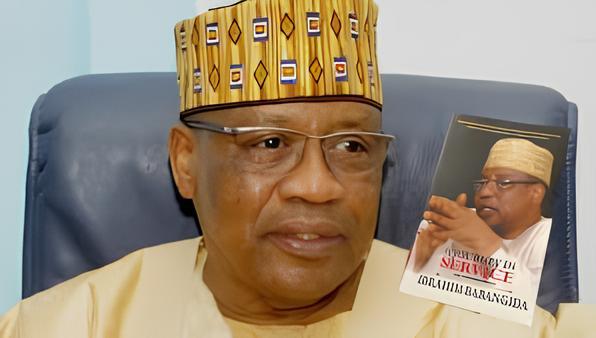Former military ruler General Ibrahim Babangida has offered a profound insight into Nigeria’s political and military history, with a special focus on iconic figures: General Yakubu Gowon and Colonel Chukwuemeka Odumegwu Ojukwu amongst many.
Babangida made the revelation in his recently published book, titled “A Journey in Service”.
The book delves into the roles these leaders played during one of the most turbulent periods in Nigeria’s history—the Nigerian Civil War (1967–1970).
Babangida, who was a key player in Nigeria’s military affairs during and after the war, provides a unique perspective on the events that shaped the nation.
Babangida reflects on General Yakubu Gowon’s tenure as Nigeria’s head of state during the civil war.
Gowon led the federal government’s efforts against the secessionist state of Biafra, declared by Ojukwu. In the book, Babangida examines Gowon’s leadership style, his handling of the war, and the immense challenges he faced in preserving Nigeria’s unity.
However, Babangida also touches on the circumstances that led to Gowon’s overthrow in a coup in 1975—a coup in which Babangida himself played a significant role.
The book provides a candid assessment of Gowon’s legacy, highlighting both his achievements and the controversies that marked his time in power.
The book also disclosed how the leader of the secessionist Republic of Biafra,Colonel Chukwuemeka Odumegwu Ojukwu, another central figure in Babangida’s decision to declare Biafra’s independence, ultimately led to the devastating civil war.
Babangida analyzes Ojukwu’s motivations, his leadership during the conflict, and the eventual collapse of the Biafran state.
Babangida also reflects on Ojukwu’s enduring legacy, acknowledging his role as a symbol of resistance and his impact on Nigeria’s post-war political landscape. The book provides a balanced view of Ojukwu’s actions, offering a deeper understanding of the complexities behind his decisions.
The book offers a rare and invaluable perspective on Nigeria’s history. His reflections on Gowon and Ojukwu provide context for understanding the intricacies of Nigeria’s military and political evolution.
The book has already sparked discussions among historians, politicians, and the general public, as it revisits a critical chapter in Nigeria’s past through the eyes of one of its most influential figures.
Read also: How Gowon’s unfulfilled promise to Igbos ignited Nigerian Civil War – Babangida
After gaining independence in 1960, Nigeria experienced significant ethnic tensions. A pivotal moment occurred in 1966 when a coup brought Yakubu Gowon to power as the head of state, while Chukwuemeka Ojukwu became the military governor of the predominantly Igbo Eastern Region. In early 1967, the two leaders met in Ghana to negotiate the Aburi Accord, which aimed to address the crisis by decentralizing Nigeria. Unfortunately, this agreement fell apart due to differing views on its implementation.
On May 30, 1967, Ojukwu declared the independence of the Republic of Biafra, citing the federal government’s failure to adequately protect the Igbo people. This declaration led to the Nigerian Civil War, which lasted from 1967 to 1970.
During the conflict, Gowon commanded the federal military in a campaign to reunify the nation, culminating in Biafra’s surrender in January 1970, after three years of intense fighting. Ojukwu subsequently fled into exile.
In the aftermath of the war, Gowon promoted reconciliation with the declaration “No victor, no vanquished,” emphasizing the need for national unity. Ojukwu returned to Nigeria in 1982 and later emerged as a notable political figure.
Ultimately, the rivalry between Gowon and Ojukwu highlighted the struggle between Nigeria’s unity and Igbo self-determination, leaving a lasting impact on the country’s history.
